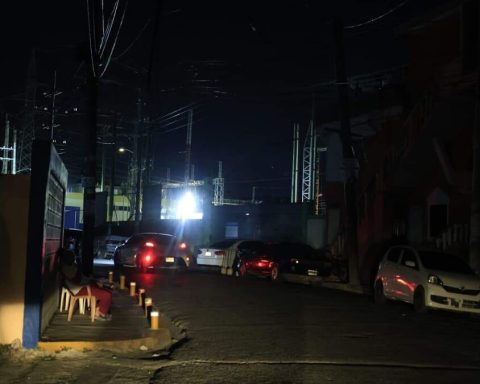The Human Rights Observatory of the Nicaraguan Association for a Better Future expressed its concern after the announcement by the President of Costa Rica, Rodrigo Chaves, who assured that “measures are being taken” to prevent economic migrants from continuing to use the political refugee regime. to get to work and settle in the Central American nation.
In the statement dated November 17, the organization states that it is concerned that the migrant community to Costa Rica “is alarmed and misinterprets the decision of President (…) Rodrigo Chaves, who announced that Costa Rica “will not receive any more economic migrants.” ».
In turn, he emphasized that the Executive’s discourse regarding migrants “with non-explanatory narratives and with a certain degree of populism” is encouraging the growth of aggressive nationalism and fosters a culture of xenophobia, “which leads to discrimination, violence, aggression, marginalization and other acts that are ignored in the public eye, therefore, we recommend discretion and responsibility in speeches and resolutions.
Related news: Costa Rica will not receive more “migrants”
He remarked that in Costa Rica refuge is granted, according to the Migration Law and the Refugee Statute (1951), to those people who are persecuted for reasons of race, ethnicity, creed, ideology, gender or origin, whose integrity is at risk and who their Human Rights can be or were violated.
For his part, Chaves has stated that he understands that people from other countries want to come to Costa Rica, “but we have more than 200,000 people requesting political refuge. Unfortunately one reaches as far as it reaches and we already stopped reaching a long time ago ».
Every person must comply with the delivery of evidence
The agency recalled that everyone has the right to request asylum in any country in the world “and that no country can deny that right”, however, it explained that for that right to be granted “certain protocols and studies must be carried out that will assess if the person is within the risk parameters established at the national and international level”.
“Any person who requests International Protection in Costa Rica has the obligation to comply with the delivery of evidence that supports their
request, and in turn comply with what the Costa Rican State demands to guarantee the granting of this condition”, he clarified.
The Observatory called on the international community to financially support Costa Rica to meet the immediate needs derived from migration, institutional and processing expenses, as well as to guarantee public policies for the insertion and integration of refugees.
Related news: Jesuit Migrant Service of Costa Rica rejects announcement by President Chaves
Finally, the Costa Rican government was reminded that being a signatory country to International Human Rights Treaties, it is obliged to receive any person who requests asylum or refuge in its territory, “otherwise, it would be in violation of International Law, Treaties International and its own Magna Carta».
Nicaragua is the country that sends the most migrants and refugees to the Central American country. Official data indicates that Costa Rica has received more than 200,000 refugee applications since 2018, when Nicaragua registered the worst human rights crisis in its modern history.
Most of these requests correspond to Nicaraguans who have fled the regime of Daniel Ortega and Rosario Murillo, some for political reasons and others for the serious sociopolitical, economic and human rights crisis that Managua has been dragging for four years.

















